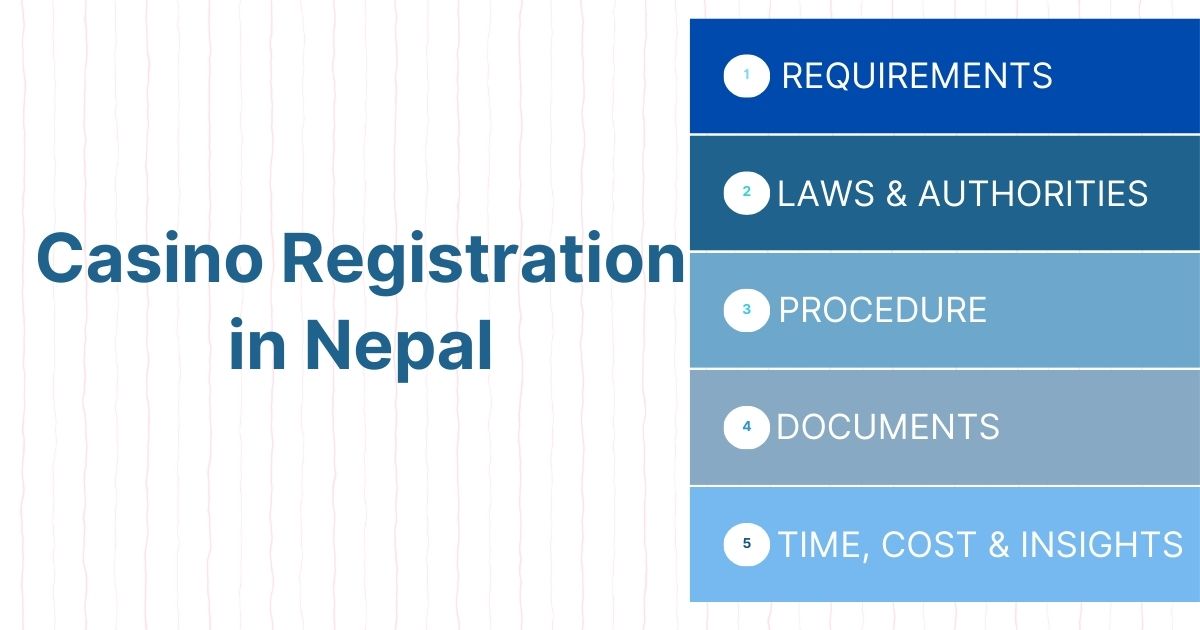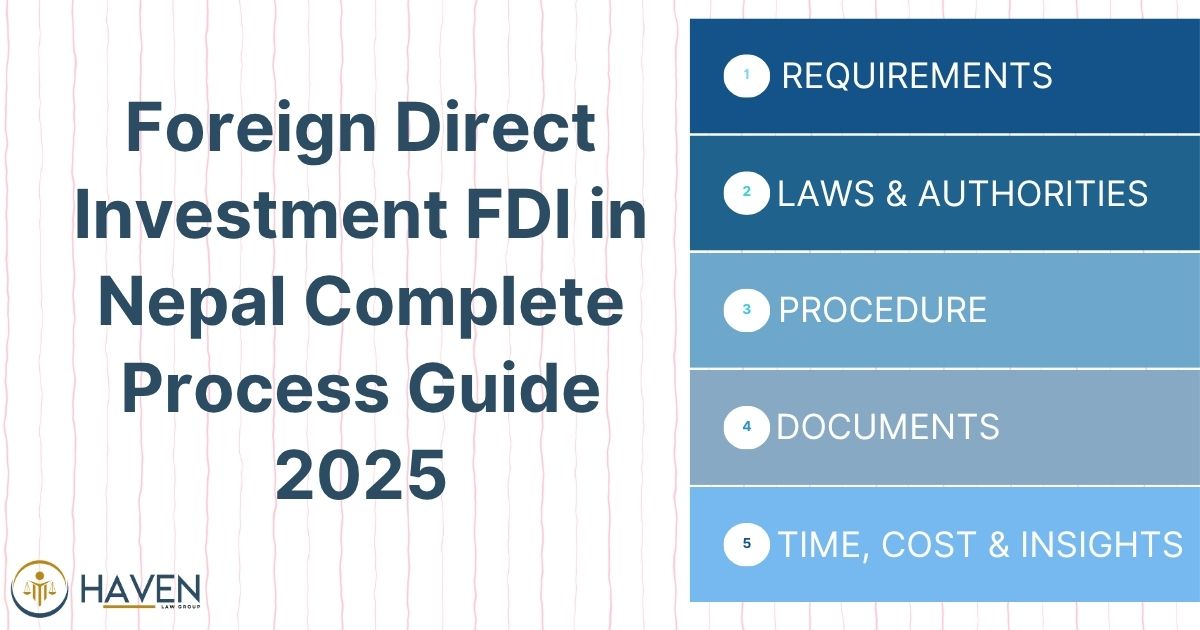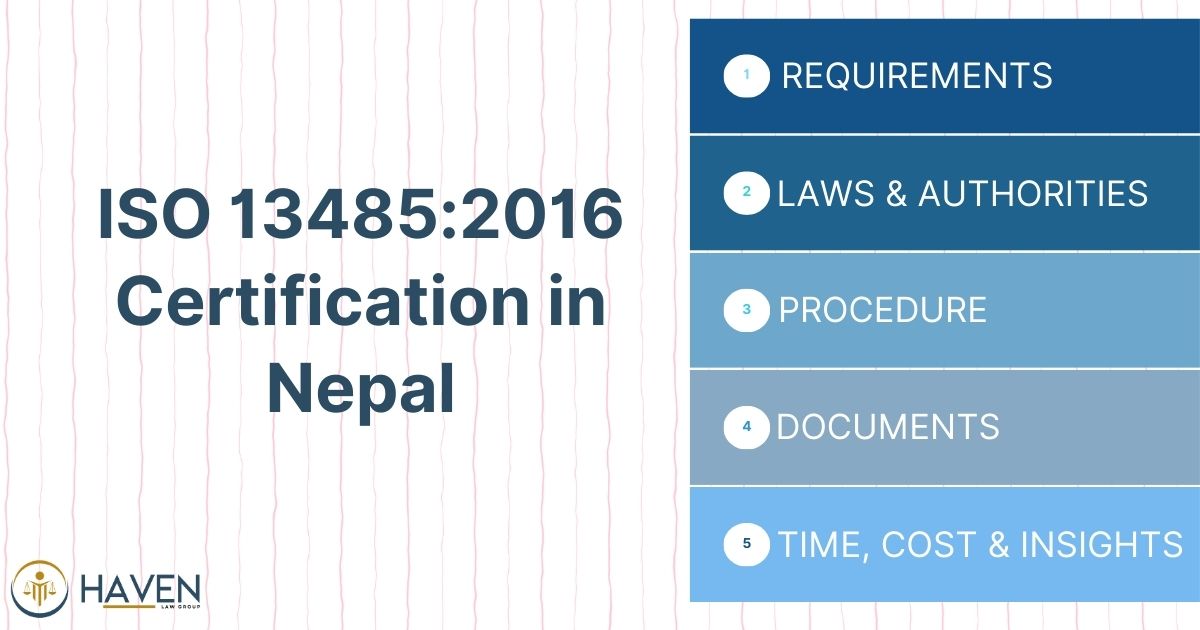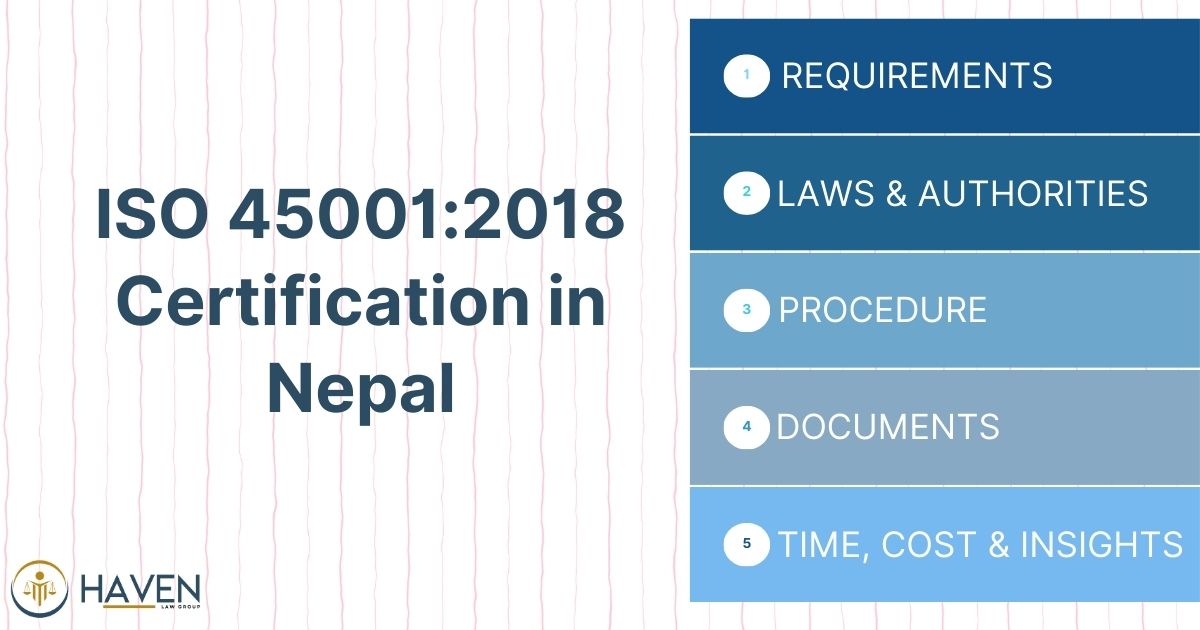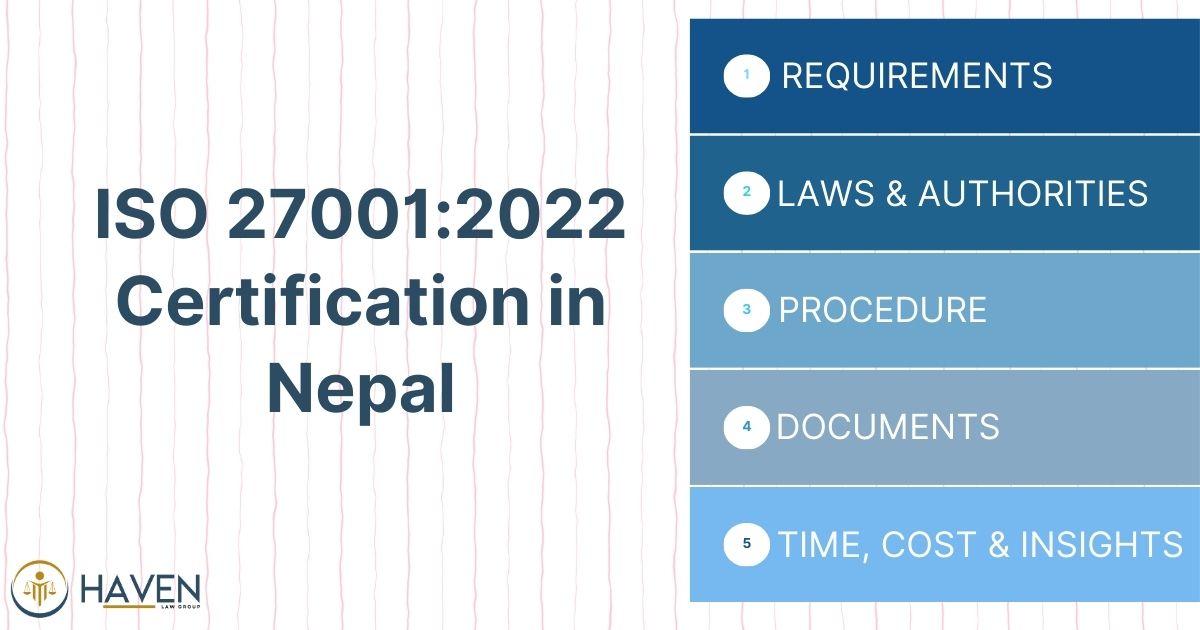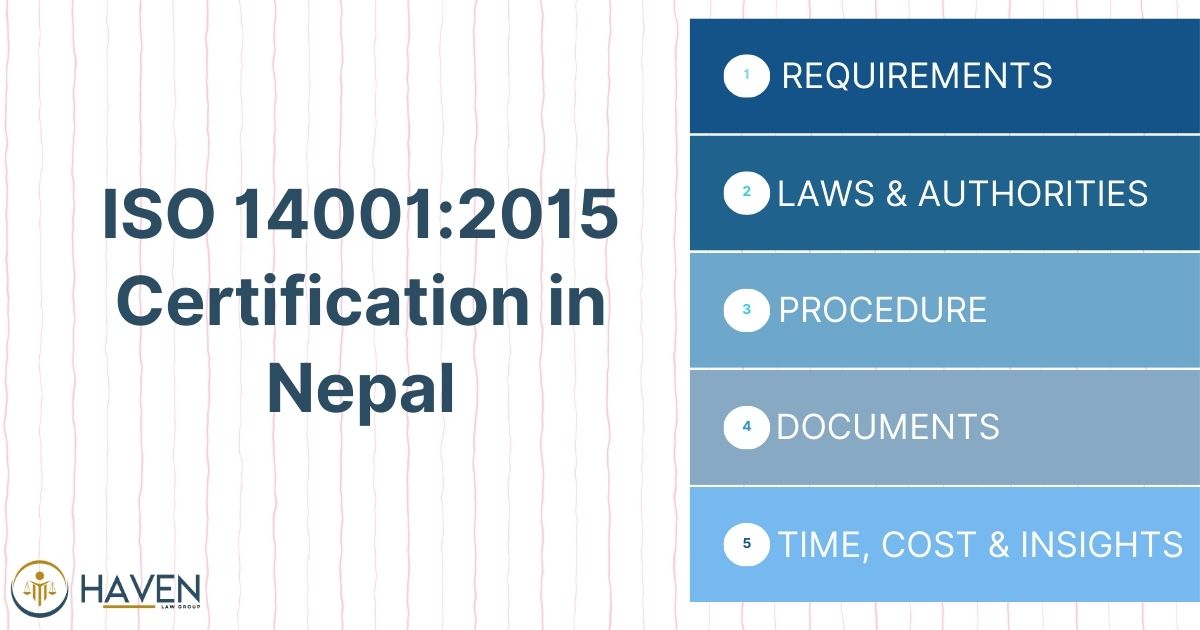Introduction
Foreign Direct Investment FDI in Nepal has gained significant momentum in recent years as the country continues to liberalize its investment climate and attract international capital. Governed primarily by the Foreign Investment and Technology Transfer Act (FITTA) 2019, Nepal offers diverse opportunities across multiple sectors while maintaining certain restrictions to protect national interests. This comprehensive guide provides detailed insights into the complete FDI establishment process, legal requirements, and practical considerations for foreign investors looking to establish business operations in Nepal.
Governing Legal Framework for FDI in Nepal
The regulatory landscape for foreign investment in Nepal is structured through several key legislations that collectively govern the investment process:
- Foreign Investment and Technology Transfer Act (FITTA) 2019 (2075): The primary legislation establishing the foundation for FDI in Nepal, covering investment procedures, technology transfer, and joint ventures.
- Foreign Investment and Technology Transfer Regulations 2021 (2076): Implementing regulations that provide detailed procedural guidelines for FITTA implementation.
- Industrial Enterprises Act 2020 (2076): Governs industrial classification, registration procedures, and provides incentives for both domestic and foreign investors.
- Companies Act 2006 (2063): Outlines requirements for company incorporation, governance structures, and operational compliance.
- Foreign Exchange Regulation Act (FERA) 1962 (2019): Regulates currency controls, foreign exchange transactions, and repatriation procedures.
- Public Private Partnership and Investment Act 2019 (2075): Establishes frameworks for PPP projects and large-scale infrastructure investments.
- Income Tax Act 2002: Defines tax obligations, incentives, and compliance requirements for foreign investors.
- Labor Act 2017: Governs employment regulations, hiring practices, and labor compliance.
- Local Governance Operations Act 2017: Mandates local business registration requirements.
- Nepal Rastra Bank Directives: Provides specific guidelines on foreign investment recording and banking procedures.
Approval Authorities for FDI in Nepal
The approval process for FDI in Nepal is segmented based on investment size and sector, with two primary authorities responsible for granting approvals:
| Approval Authority | Investment Threshold | Jurisdiction |
|---|---|---|
| Department of Industry (DOI) | Investments below NPR 6 Billion | Most sectors excluding hydropower |
| Investment Board of Nepal (IBN) | Investments above NPR 6 Billion | Large-scale projects and hydropower above 200 MW |
| Nepal Rastra Bank (NRB) | Post-approval recording | All foreign investments |
The Department of Industry serves as the primary approval authority for most foreign investments, while the Investment Board of Nepal handles large-scale projects exceeding NPR 6 billion or hydropower projects with capacity above 200 MW. Following approval from either DOI or IBN, all investments must be recorded with Nepal Rastra Bank for final clearance.
Permissibility Requirements and Negative List Sectors
Foreign investors must meet two fundamental conditions to obtain FDI approval in Nepal:
- The proposed business activity must not be listed in the “Negative List of Industries for Foreign Investment” provided in the Schedule of the Foreign Investment Act.
- The business must be classified as an “industry” under the Industrial Enterprise Act.
Negative List Sectors (Restricted for Foreign Investment)
The following sectors are either completely restricted or have limitations on foreign investment:
- Agriculture-related businesses (excluding agricultural technology and mechanization) related to animal husbandry, fish farming, beekeeping, fruits, vegetables, oilseeds, pulses, dairy business, and primary agricultural production that produce and export at least seventy-five percent of their output.
- Cottage and small industries as defined by Nepalese law.
- Personal service businesses including hair cutting, tailoring, driving, etc.
- Defense-related industries manufacturing arms, ammunition, bullets, gunpowder, explosives, nuclear, biological, and chemical weapons; industries producing atomic energy and radioactive materials.
- Real estate business (excluding construction industries), retail business, internal courier service, local catering service, moneychanger, and remittance services.
- Tourism services including travel agencies, guides involved in tourism, trekking and mountaineering guides, rural tourism including homestay.
- Mass communication media including newspapers, radio, television, and online news in national language, and motion pictures.
- Professional services including management, account, engineering, legal consultancy services and language training, music training, and computer training.
- Consultancy services with foreign investment exceeding fifty-one percent.
- Ride sharing services with foreign investment exceeding seventy percent.
- Aircraft operations with the following foreign investment limits:
- International airlines service: eighty percent
- Domestic airlines service: forty-nine percent
- Training institution: ninety-five percent
- Repair and maintenance: ninety-five percent
Minimum Investment Thresholds by Sector
The minimum investment requirements for FDI in Nepal vary by sector:
| Sector | Minimum Investment Requirement |
|---|---|
| Most sectors | NPR 20 million (approximately USD 155,000) |
| Information Technology companies | No minimum requirement |
| Large-scale infrastructure projects | NPR 6 billion (handled by IBN) |
| Hydropower projects above 200 MW | NPR 6 billion (handled by IBN) |
The minimum investment threshold of NPR 20 million applies to most sectors, but IT companies are exempt from this requirement, reflecting the government’s strategic interest in promoting the technology sector.
Foreign Ownership Percentage Limitations by Industry
While Nepal generally allows 100% foreign ownership in permitted sectors, certain industries have specific ownership limitations:
| Industry | Maximum Foreign Ownership |
|---|---|
| Consultancy services | 51% |
| Ride sharing services | 70% |
| Domestic airlines | 49% |
| International airlines | 80% |
| Aircraft training institutions | 95% |
| Aircraft repair and maintenance | 95% |
| Most other permitted sectors | 100% |
Complete Step-by-Step FDI Approval Process in Nepal
The FDI establishment process in Nepal involves multiple stages and requires approvals from various government agencies. Below is the comprehensive step-by-step procedure:
Step 1: Preliminary Application and Foreign Investment Approval
The process begins with submitting an application to either the Department of Industry (DOI) or Investment Board of Nepal (IBN), depending on the investment size. The application must include:
- Project Report detailing business background, market analysis, technical aspects, financial projections, and funding sources
- Bio-data or company profile of the foreign investor
- Copy of registration documents of the foreign investor (Certificate of Registration, Memorandum of Association, Articles of Association)
- Corporate resolution authorizing investment in Nepal
- Financial credibility certificate from a bank in the investor’s home country
- Documents stating the source of investment and timeline
- Power of Attorney authorizing a representative in Nepal
- Passport copies of the foreign investor and directors
- Commitment letter stating the investor will not repatriate investment for at least one year
- Joint Venture Agreement (if applicable)
Step 2: Incorporation of Company at the Office of the Company Registrar
After obtaining preliminary investment approval, the company must be incorporated with the Office of the Company Registrar (OCR). This involves:
- Submitting application for company registration
- Providing articles of association and memorandum of association
- Obtaining company registration certificate
- Securing permanent account number (PAN) for tax purposes
Step 3: Tax Registration at the Inland Revenue Office
The newly incorporated company must register with the Inland Revenue Office (IRO) for tax purposes:
- Obtaining VAT registration (if applicable)
- Registering for income tax purposes
- Securing tax clearance certificates as required
Step 4: Business Registration at the Local Ward Office
Local business registration is mandatory under the Local Governance Operations Act 2017:
- Registering the business with the local ward office
- Obtaining local business operation certificate
- Paying local registration fees
Step 5: Registration of Industry at the Department of Industry
Following company incorporation, the industry must be registered with the Department of Industry:
- Submitting industry registration application
- Providing details of business operations
- Obtaining industry registration certificate
Step 6: Obtaining Non-Blacklist Certificate from Credit Information Bureau
The company must obtain a certificate from the Credit Information Bureau confirming it is not blacklisted:
- Submitting application to Credit Information Bureau
- Providing company details and director information
- Obtaining clearance certificate
Step 7: Obtaining Approval from Nepal Rastra Bank to Infuse Investment
Prior to injecting capital, approval from Nepal Rastra Bank is required:
- Submitting application to NRB for foreign currency conversion
- Providing investment approval documents
- Obtaining NRB clearance for capital infusion
Step 8: Infusion of Investment Amount and Obtaining Investment Certificate
The approved investment amount must be infused through proper banking channels:
- Transferring foreign currency to a Nepalese bank account
- Converting to Nepalese rupees as per NRB regulations
- Obtaining investment certificate from the bank
Step 9: Recording of Infused Investment at Nepal Rastra Bank
The final step involves recording the investment with Nepal Rastra Bank:
- Submitting investment certificate to NRB
- Providing proof of capital infusion
- Obtaining final recording of foreign investment
Required Documentation Checklist for FDI in Nepal
A comprehensive documentation package is essential for successful FDI approval in Nepal:
Preliminary Approval Documents
- Project Report: Detailed business plan including market analysis, technical aspects, financial projections, and implementation timeline.
- Investor Profile: Complete bio-data or company profile of the foreign investor.
- Registration Documents: Certificate of Incorporation, Memorandum of Association, Articles of Association of the investing company.
- Corporate Resolution: Board resolution authorizing investment in Nepal and appointing representatives.
- Financial Credentials: Bank-issued certificate of financial credibility from the investor’s home country.
- Source of Funds: Documentation proving the legitimate source of investment funds.
- Power of Attorney: Legal document authorizing a representative to act on behalf of the investor in Nepal.
- Identification Documents: Passport copies of the foreign investor and directors.
- Commitment Letter: Statement confirming no repatriation of investment for at least one year.
- Joint Venture Agreement: If applicable, agreement between foreign and local partners.
Post-Approval Documents
- Company Registration Certificate: Issued by the Office of the Company Registrar.
- Tax Registration Documents: PAN certificate, VAT registration (if applicable).
- Local Business Registration: Certificate from the local ward office.
- Industry Registration Certificate: Issued by the Department of Industry.
- Non-Blacklist Certificate: From the Credit Information Bureau.
- NRB Approval Documents: Clearance for capital infusion.
- Investment Certificate: Bank certificate confirming capital infusion.
- NRB Recording Certificate: Final confirmation of investment recording.
Timeline for FDI Approval Process in Nepal
The FDI process in Nepal typically follows this timeline:
| Process Step | Average Time Required |
|---|---|
| Preliminary Investment Approval (DOI/IBN) | 15-20 working days |
| Company Incorporation (OCR) | 7-10 working days |
| Tax Registration (IRD) | 3-5 working days |
| Local Business Registration | 2-3 working days |
| Industry Registration (DOI) | 5-7 working days |
| Non-Blacklist Certificate | 3-5 working days |
| NRB Approval for Capital Infusion | 7-10 working days |
| Capital Infusion and Investment Certificate | 5-7 working days |
| NRB Recording of Investment | 5-7 working days |
| Total Process Time | 45-70 working days |
The entire process typically takes 1-2 months, assuming all documentation is complete and there are no complications during the approval process.
Government Fees and Charges for FDI in Nepal
The cost structure for FDI in Nepal includes the following fees:
| Process | Fee Structure |
|---|---|
| Foreign Investment Approval | No fee (refundable deposit of NPR 50,000 required) |
| Company Registration | NPR 15,000 – NPR 100,000 based on authorized capital |
| Industry Registration | No fee |
| Tax Registration | No fee for PAN registration |
| Local Business Registration | NPR 1,000 – NPR 5,000 based on business type |
| NRB Approval | No fee |
| Capital Conversion | No fee (standard bank conversion rates apply) |
| Visa Fees | Varies based on visa type and duration |
Investment Injection Timeline and Stages
The capital infusion process for FDI in Nepal must follow a structured timeline:
- Initial Capital Injection: Within 6 months of obtaining preliminary approval, at least 25% of the committed investment must be infused.
- Subsequent Injections: The remaining investment must be infused within the timeframe specified in the investment proposal, typically within 2 years.
- Final Recording: All capital injections must be properly recorded with Nepal Rastra Bank to complete the investment process.
Failure to inject capital within the specified timeline may result in penalties or cancellation of the investment approval.
Sector-Specific Additional Approvals
Depending on the industry, additional approvals may be required from sector-specific regulatory authorities:
| Sector | Regulatory Authority | Additional Requirements |
|---|---|---|
| Insurance | Insurance Board | Special license and capital requirements |
| Banking and Financial Institutions | Nepal Rastra Bank | Strict capital adequacy and compliance requirements |
| Hydropower | Department of Electricity Development | Environmental impact assessment and technical feasibility studies |
| Tourism | Department of Tourism | Tourism-specific licenses and compliance |
| Food Industry | Department of Food Technology and Quality Control | Food safety and quality standards compliance |
| Telecommunications | Nepal Telecommunications Authority | Spectrum allocation and technical compliance |
| Pharmaceuticals | Department of Drug Administration | Product registration and quality compliance |
| Mining | Department of Mines and Geology | Mining lease and environmental compliance |
Post-Investment Compliance Obligations
After successful establishment, FDI companies in Nepal must maintain ongoing compliance:
- Annual Renewals: Industry registration must be renewed annually with the Department of Industry.
- Tax Compliance: Regular filing of income tax returns, VAT returns (if applicable), and other tax obligations.
- Statutory Audits: Annual financial audits conducted by certified auditors.
- Board Meetings: Regular board meetings as required by the Companies Act.
- Annual General Meetings: Mandatory AGMs with proper documentation and filings.
- Foreign Exchange Reporting: Regular reporting of foreign exchange transactions to Nepal Rastra Bank.
- Labor Compliance: Adherence to labor laws, provident fund contributions, and other employee-related obligations.
- Environmental Compliance: Ongoing compliance with environmental regulations and reporting.
Repatriation Process and Requirements
The repatriation of profits and capital from Nepal is subject to specific regulations:
- Dividend Repatriation: Allowed after payment of applicable taxes and submission of audited financial statements.
- Capital Repatriation: Permitted after one year from the date of investment recording with NRB.
- Loan Repayment: Foreign loans can be repaid according to the terms approved by NRB.
- Technical Service Fees: Repatriation of technical service fees requires prior approval from NRB.
- Royalty Payments: Requires approval from DOI and NRB, with proper documentation.
The repatriation process involves submitting applications to Nepal Rastra Bank with supporting documents including tax clearance certificates, audited financial statements, and proof of tax payment.
Practical Considerations and Challenges for Foreign Investors
While FDI in Nepal offers significant opportunities, investors should be aware of practical challenges:
- Bureaucratic Procedures: Despite efforts to streamline processes, bureaucratic delays can still occur.
- Infrastructure Limitations: Certain regions face infrastructure challenges that may affect business operations.
- Policy Consistency: While improving, policy consistency and implementation can vary across administrations.
- Cultural Differences: Understanding local business culture and practices is essential for successful operations.
- Talent Acquisition: Finding skilled personnel in certain specialized fields may be challenging.
- Currency Fluctuations: The Nepalese rupee’s peg to the Indian rupee can create currency management challenges.
- Regulatory Interpretations: Different agencies may interpret regulations differently, requiring careful navigation.
- Political Stability: While improving, political developments can impact business operations.
Investment Incentives and Tax Benefits
Nepal offers various incentives for foreign investors to attract FDI:
- Tax Holidays: Certain industries receive income tax holidays for specific periods.
- Customs Duty Exemptions: Import of machinery and equipment may receive duty exemptions.
- Export Incentives: Export-oriented industries receive additional benefits and tax rebates.
- Special Economic Zones: Industries established in SEZs receive additional incentives.
- Sector-Specific Incentives: Priority sectors such as hydropower, tourism, and agriculture receive special incentives.
- Technology Transfer Incentives: Companies bringing advanced technology may receive additional benefits.
Dispute Resolution Mechanisms
For FDI-related disputes in Nepal, several resolution mechanisms are available:
- Negotiation and Mediation: Direct negotiation between parties or through mediation centers.
- Arbitration: Domestic arbitration through Nepal Arbitration Council or international arbitration as agreed in contracts.
- Court Proceedings: Commercial courts handle business-related disputes.
- Investment Board Intervention: For large-scale investments, IBN may facilitate dispute resolution.
- Bilateral Investment Treaties: Nepal has BITs with several countries providing additional protection mechanisms.
Special Economic Zones and Industrial Parks
Nepal is developing SEZs and industrial parks to attract foreign investment:
- Bhairahawa SEZ: The first operational SEZ in Nepal, offering various incentives.
- Simara SEZ: Under development with focus on manufacturing industries.
- Industrial Districts: Established in various regions with infrastructure support.
- IT Parks: Specialized parks for technology companies with additional incentives.
These zones offer streamlined procedures, infrastructure support, and additional incentives for foreign investors.
Frequently Asked Questions (FAQ) about FDI in Nepal
What is the minimum investment required for FDI in Nepal?
The minimum investment requirement for FDI in Nepal is NPR 20 million (approximately USD 155,000) for most sectors. However, IT companies are exempt from this minimum requirement, reflecting the government’s strategic interest in promoting the technology sector.
Can foreign investors own 100% of a company in Nepal?
Yes, foreign investors can own 100% of companies in most permitted sectors. However, certain industries have ownership limitations, such as consultancy services (51% maximum), ride sharing (70% maximum), and domestic airlines (49% maximum).
How long does the FDI approval process take in Nepal?
The complete FDI process in Nepal typically takes 45-70 working days (1-2 months), assuming all documentation is complete and there are no complications during the approval process.
What are the main sectors restricted for foreign investment in Nepal?
The main restricted sectors include agriculture-related businesses (except technology and mechanization), cottage and small industries, personal services, defense-related industries, real estate, retail business, mass media, and certain professional services.
Can foreign investors repatriate profits from Nepal?
Yes, foreign investors can repatriate profits from Nepal after payment of applicable taxes and submission of required documentation. Capital repatriation is permitted after one year from the date of investment recording with Nepal Rastra Bank.
What are the main taxes applicable to FDI companies in Nepal?
The main taxes applicable to FDI companies in Nepal include corporate income tax (currently 25% for most industries), value-added tax (13%), customs duties on imported goods, and various other sector-specific taxes.
Are there any special incentives for foreign investors in Nepal?
Yes, Nepal offers various incentives including tax holidays for certain industries, customs duty exemptions on machinery and equipment, export incentives, and special benefits for investments in Special Economic Zones and priority sectors.
What is the role of Nepal Rastra Bank in the FDI process?
Nepal Rastra Bank plays a crucial role in the FDI process in Nepal by approving capital infusion, monitoring foreign exchange transactions, recording foreign investments, and facilitating repatriation of profits and capital.
Can foreign investors obtain visas to work in their Nepal-based companies?
Yes, foreign investors and their employees can obtain business visas and work permits to work in Nepal. The company must sponsor the visa applications and demonstrate the necessity of foreign personnel.
What is the difference between Department of Industry and Investment Board of Nepal?
The Department of Industry handles foreign investments below NPR 6 billion, while the Investment Board of Nepal manages investments above NPR 6 billion or hydropower projects with capacity above 200 MW.
Conclusion
Foreign Direct Investment in Nepal presents significant opportunities for international investors across diverse sectors. While the regulatory framework has evolved to become more investor-friendly, understanding the complete process and requirements is essential for successful investment establishment. The Foreign Investment and Technology Transfer Act 2019 provides a solid foundation for foreign investment, with clear procedures and protections for investors.
By following the comprehensive process outlined in this guide and ensuring compliance with all legal requirements, foreign investors can successfully establish and operate businesses in Nepal’s growing economy. The government’s continued commitment to economic liberalization and infrastructure development further enhances the investment climate, making Nepal an increasingly attractive destination for foreign capital.
For personalized guidance on your specific investment plans in Nepal, consult with legal experts specializing in foreign investment to navigate the process efficiently and ensure full compliance with all regulatory requirements.
Disclaimer: This article is for informational purposes only and does not constitute legal advice. The information provided is based on regulations as of 2023 and may be subject to change. Investors should consult with legal professionals for advice tailored to their specific circumstances before making investment decisions. Contact our law firm in Nepal.


